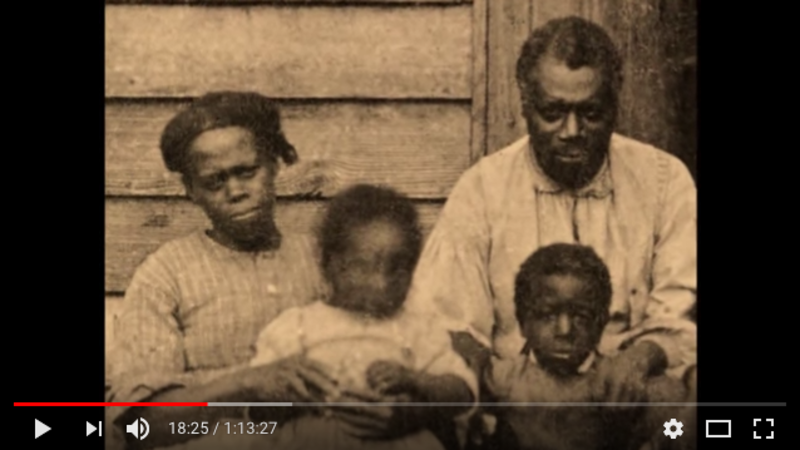Black Womanhood in Relationships with Men
Slave Narratives
Content warning: violence, sexual violence
In the period of slavery in the United States, many Black women were enslaved. This meant that, though they could exhibit some agency in their relationships, this agency was utterly limited and supervised by their white masters. The above documentary by HBO explores some of the slave narratives recounted by the final generation of African Americans born into slavery. The narratives were collected around the country in the late 1930s as a project funded by the Federal Writers project to preserve their stories (“Readings from the Slave Narratives”).
The portion linked to above (starting at 17:28 and ending around 19:02) discusses the act of white masters committing sexual acts with enslaved Black women, often against their will:
Many owners and overseers believed that sexual access to slave women was one of their prerogatives. The rape of Black women also served to humiliate their husbands and undermine the integrity of slave families (“Readings from the Slave Narratives”).
Children produced through the union of Black women and their white masters were often given places of honor among other enslaved people, and they were often treated more kindly by their masters: “he comes to see us near every day, and fetches us clothes and things from town” (“Readings from the Slave Narratives”). This also served to segregate enslaved families and by creating a hierarchy based on skin color.
In addition to having sexual violence committed against them, enslaved Black women could also be separated from their families at the whim of their masters. Enslaved Black women were permitted to have husbands, but if a woman (or her husband or children) was sold, there was no legal recourse to being able to keep her family together, as they were perceived and treated as property.
Not only that, but even if Black women lived close to their husbands or romantic partners, the partners might have had to sneak off under the cover of night in order to be united. Hartman discusses ways in which enslaved people performed agency in their romantic relationships:
Sallie Johnson said that men would often sneak away to visit their wives. These nighttime visits to lovers and family were a way of redressing the natal alienation or enforced “kinlessness” of the enslaved, as well as practices of naming, running away, and refusing to marry a mate not of one’s choosing or to remarry after a husband or wife was sold away; all of these were efforts to maintain, if not reconstitute, these ties (Hartman 67).
That said, if they were caught, “the consequences of these small-scale challenges were sometimes life-threatening, if not fatal,” including being beaten to death or being given 100 lashes (Hartman 67-68). With such high penalties, it could be very costly for enslaved Black women (and men) to exert even small amounts of autonomy in their relationships.
Sources:
-
Hartman, Saidiya V. Scenes of Subjection: Terror, Slavery, and Self-Making in Nineteenth-Century America, Oxford University Press, New York, 1997, pp. 49-78.
-
“Readings from the Slave Narratives.” YouTube, uploaded by Anthony Johnson, 23 Sept. 2015, https://youtu.be/xjjb-7R02Rw.
| << prev Overview |
next >> Sexuality in the Blues |
